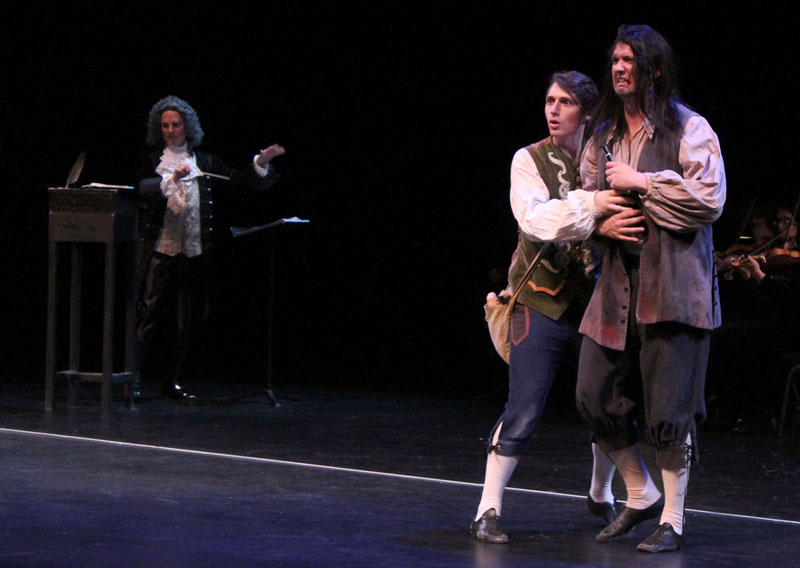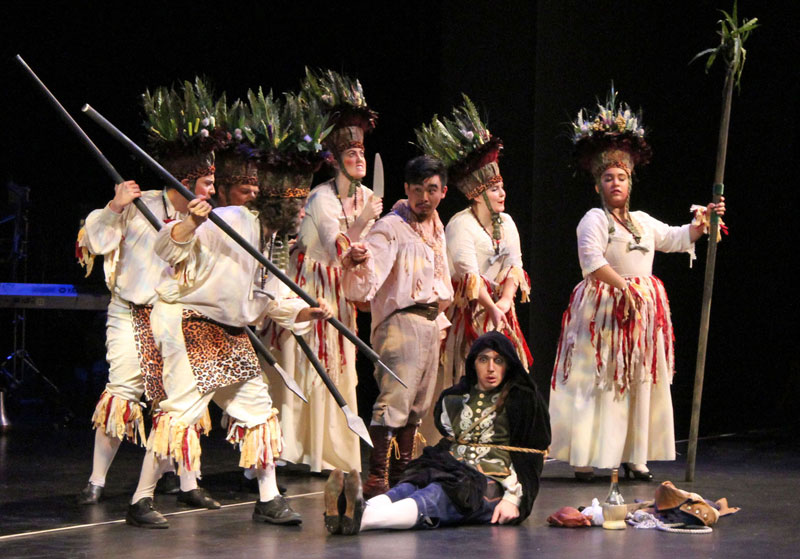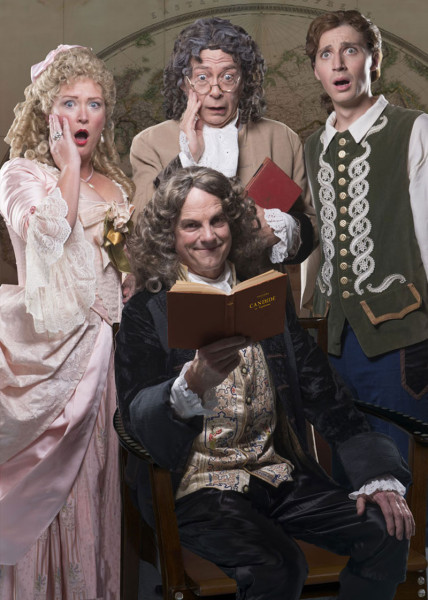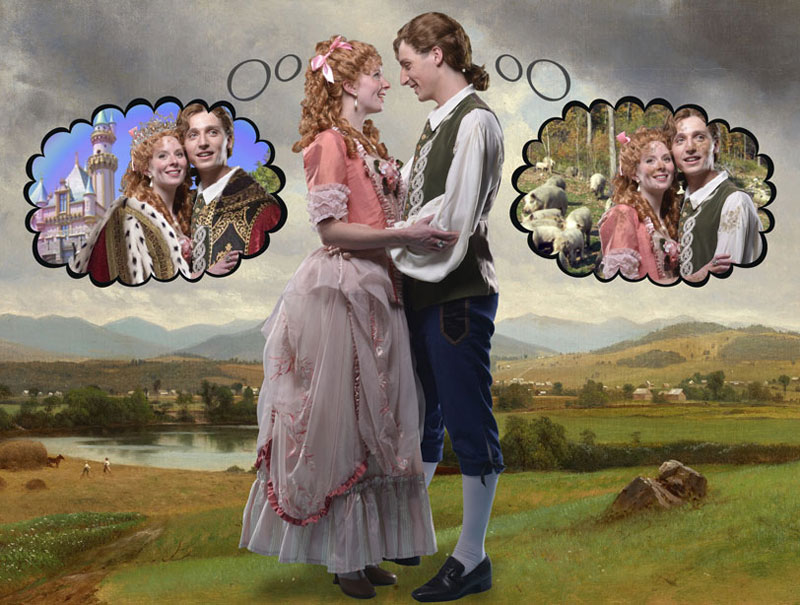On the face of it, Voltaire’s 1759 satirical novella Candide might seem like grim source material for a musical like the one that Lamplighters Music Theatre is currently touring around the Bay Area. It’s the picaresque tale of refugees from a German baron’s court who struggle to maintain their belief that everything happens for the best in this “best of all possible worlds” as they endure a seemingly endless series of horrors: invasion, shipwreck, earthquake, flogging, hanging, slavery, prostitution and the Spanish Inquisition, for starters. Much of the humor comes from the author’s wry treatment of these horrors. The colorful character of the Old Woman has only one buttock, which merely seems like a fanciful running gag until you find out the other one was eaten by starving soldiers during a siege. And after she tells her sad tale, it goes right back to being an amusing quirk that she complains about whenever she has to ride a horse.

Much like its protagonist, the musical Candide is awfully good but has known nothing but trouble. Blessed with one of Leonard Bernstein’s most magnificent scores, the show was a huge flop when it premiered on Broadway in 1956. It’s been rewritten over and over again ever since. Lillian Hellman’s initial libretto was scrapped entirely and replaced in 1973 with a much more playful one by Hugh Wheeler. The original version had several lyricists—primarily Richard Wilbur, but also Bernstein, Hellman, John Latouche and Dorothy Parker—and Wilbur and Stephen Sondheim were brought to revamp the lyrics for later versions.
The many versions of the musical include the 1956 original, the 1973 “Chelsea” one-act revamp and its 1982 expanded “opera house version,” a 1988 Scottish Opera version tweaked by Bernstein himself and a 1997 Broadway revival with some extra numbers to make it more of a star vehicle. The version Lamplighters is using is one of the more drastically revised ones, and also one of the most complete. This 1999 National Theatre version was rewritten by John Caird to be much more faithful to Voltaire than any previous iteration. (Hayward’s Douglas Morrisson Theatre performed this same version last November.)
One of the problems with having so many variations floating around, with their respective recordings, is that it’s nearly impossible to achieve the best of all possible versions. A song you loved from one is bound to be missing or completely rewritten in another. Even the National Theatre version is missing the delightful comedic trio “Quiet.”
For the most part, however, Lamplighters’ Candide seems exhaustively — not to say exhaustingly — complete. At more than three hours, it showcases Bernstein’s delightful score in all its glory, which means it includes some disposable numbers such as the philosopher Pangloss’ ode to sexually contracted diseases or the stately procession of former monarchs.

Now in its 63rd year, Lamplighters has always been primarily a Gilbert and Sullivan company. The music is very much the star of this production, nicely played by the orchestra conducted by Baker Peeples, who doubles as Voltaire. There was a bit of unevenness on opening night—some discord among the horns, a slightly too loud keyboard and varying levels of audibility among the principal roles. Samuel Faustine’s boyishly naive Candide is very quiet, for instance, while Phil Wong’s upbeat sidekick Cacambo and Ben Brady’s angry pessimist Martin are loud and clear. Fortunately there are supertitles, so you won’t miss any of the witty lyrics.



